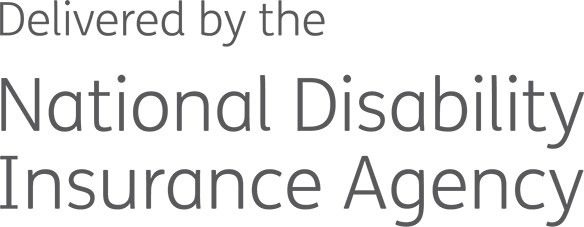
 Our reference:
Our reference: [1364] FOI 25/26-0073, [1366] FOI 25/26-0074,
[1455] FOI 25/26-0129
13 August 2025
David Wright
By email: xxxxxxxxxxxxxxxxxxxxxxxxxx@xxxxxxxxxxx.xxx.xx, foi+request-13392-
xxxxxxxx@xxxxxxxxxxx.xxx.xx, xxxxxxxxxxxxxxxxxxxxxxxxxx@xxxxxxxxxxx.xxx.xx
Dear David Wright
Freedom of Information request — Request consultation process
Thank you for your 3 pieces of correspondence received on 9 July 2025, in which you
requested access under the
Freedom of Information Act 1982 (FOI Act) to documents held
by the National Disability Insurance Agency (NDIA).
These 3 requests are being treated as one request for the purpose of section 24(2) of the
FOI Act. This means you only have to respond to this letter once, to negotiate the scope of
all your requests at the same time.
Scope of your request
These 3 requests have been grouped together because they all related to the same subject
matter. They are all seeking documents related to Model Litigant Obligation (MLO)
complaints received by the NDIA.
You have requested access to the following documents:
[1364] FOI 25/26-0073
“…" For all MLO complaints which were investigated from 1 July 2024 to 30 June 2025, I
request:
1) A list of all the external legal providers engaged by the NDIA to investigate these MLO
complaints.
1
2) A list of all the external legal providers which were engaged by the NDIA in matters that
were subject of these complaints. "
[1364] FOI 25/26-0073
" …FOI 24.25 1119, Document 1, states that records are created in the NDIA's LEX
database for Model Litigant Obligation (MLO) complaints.
I request all such entries in the LEX database, dating from 1 July 2024 to 30 June 2025. "
[1455] FOI 25/26-0129
“…FOI 24/25-0251, document 2 states: 'The NDIA reports regularly to the Office of Legal
Services Coordination on these [Model Litigation Obligation] matters.'
I request copies of all these reports.”
Practical refusal
I am authorised to make decisions under section 23(1) of the FOI Act.
I am writing to advise that your request does not provide enough information about the
documents you are seeking as is reasonably necessary to allow us to identify them. This is
called a ‘practical refusal reason’ under section 24AA of the FOI Act.
I am also writing to advise that the work involved in processing your request in its current
form would substantially and unreasonably divert the resources of the NDIA from its other
operations due to its size. This is also called a ‘practical refusal reason’ under section 24AA
of the FOI Act.
On this basis, I intend to refuse your request. However, before I make a final decision, I am
writing to provide you with an opportunity to revise your request. This is called a ‘request
consultation process’ as set out under section 24AB of the FOI Act. You have 14 days to
respond to this notice in one of the ways set out below.
Why I intend to refuse your request
We have consulted with relevant NDIA staff who could be expected to be able to identify
documents within the scope of the request, including staff who are knowledgeable about
how to conduct searches of the NDIA’s LEX systems. Those searches indicate that the NDIA
unable to locate documents that may be relevant to your request. This outcome shows that
2
the terms of your request do not provide sufficient information to allow us to identify the
specific documents that you are seeking.
This is because the NDIA’s LEX system is not a “database,” which is how you have
described it. LEX a matter management software that contains numerous linked records in
the form of emails, documents, attachments, file notes, references to legislative acts, staff
reminders, timesheet entries, invoices, and more. You can read more about what LEX is on
the company’s website:
LEX - Lex Australia - software for in-house lawyers and contract
managers
The wording of your request does not provide sufficient information for me to understand
what LEX records specifical y you are seeking access to. As such, you have not provided
sufficient detail for me to identify the documents you want to access.
In addition, the NDIA doesn’t operate a single LEX system; it has multiple LEX systems.
Each LEX system is designed for use in a particular sub-team within the NDIA. Each LEX
system potentially has tens of thousands of main records. Each main record is potentially
linked to hundreds of records including file notes, attachments, reminders and other
documents. You have not specified which version of LEX you wish us to search. Therefore,
my interpretation is that you wish me to search all versions of LEX, which encompasses
hundreds of thousands – or potentially millions - of documents.
These hits wil not be in the form of “entries,” as you have suggested. Many will be in the
form of documents which may be many pages in length and may take the form of personal
emails, medical reports, assessments, and other highly sensitive materials. This is because
MLO complaints are usually lodged by individual NDIS participants involved in Administrative
Reviews Tribunal (ART) matters. These complaints commonly outline their personal
circumstances such as their disability, medical history and supports in dispute. You do
not
have the authority to access the personal, protected information of other people involved
with the NDIS. Releasing this kind of sensitive information to you would be a serious breach
of other people’s personal privacy.
I note that one of your emails sought access to
all reports about MLO mat ers sent to the
Of ice of Legal Services Coordination (OLSC). This part of your request does not contain a
date range or any clarifying information about the kind of reports you are interest in. As such,
the scope of your request encompasses
any report made to OLSC since the inception of the
NDIA in 2013. This is over a decade’s worth of reports and it will encompasses thousands of
reports. This will include numerous reports sent about specific participants’ matters. These
3
reports contain those participants’ sensitive personal information. As I have already noted
above, you do not have the authority to access the personal, protected information of other
people involved in the NDIS.
Moreover, the material wil also likely contain the information of multiple affected third
parties. We have an obligation under the FOI Act to consult with each affected third party
before releasing information that affects them. As such, we wil need to consider al required
consultations and carry these out. These third parties will include numerous law firms. The
FOI Act contains several sections which allow agencies to refuse access to legal advice (see
s 42), and to refuse access to sensitive business information (see 3 47G).
The documents that are assessed as being within scope of the request wil then need to be
reviewed for sensitivities and possible exemption under the FOI Act and scheduled. As I
have already mentioned, it is highly likely that numerous documents wil contain sensitive
personal material, sensitive business material and legal advice that is exempt from
disclosure under the FOI Act. As such, each document wil need to be redacted on a line-by-
line basis to obscure all the information that is exempt from disclosure.
Furthermore, a decision wil need to be made on each document in turn, and a decision
letter prepared. This wil significantly increase the hours that it wil take an FOI officer to
process your request. It is my estimate that it wil require over 100 hours to process your
request, as it is currently worded.
As a result, I am of the view that the work involved in the processing of this request would
substantially and unreasonably divert the resources of the NDIA from its other operations.
Request consultation process
You now have an opportunity to revise your request to enable it to proceed.
In this context, revising your request means both narrowing the scope of the request to make
it more manageable and explaining in more detail the documents you wish to access. For
example, by providing more specific information about exactly what documents you are
interested in, the NDIA wil be able to pinpoint the documents more quickly and avoid using
excessive resources to process documents you are not interested in.
To reduce the scope of your request, you might like to consider:
• Specifying which version of LEX you wish to search.
4
• Specifying whether you wish us to access only the main matter record on LEX, or to also
search other documents or notes and notes attached to those main records. If you wish
us to search linked documents or notes, please specify what category.
• Specifying what kind of OLSC reports you wish to access. For example, you might like to
exclude any reports made about the progress on individual participants’ matters. You
can find out more about OLSC’s reporting functions by reading their website:
Compliance and reporting | Attorney-General's Department
• Including a date range to limit the OLSC reports to a defined period.
• Specifically stating that you do not wish to access the personal information of any NDIS
participants. Specifically stating that if other people’s personal information appears within
searches, you agree for it to be redacted as irrelevant.
You have 14 days from the date you receive this letter to contact me and do one of the
following:
a. withdraw your request
b. make a revised request
c. indicate that you do not wish to revise the request.
During this period, you are welcome to seek assistance to revise your request. If you revise
your request in a way that adequately addresses the practical refusal reason outlined above,
we wil recommence processing it.
Please note that the time taken to consult with you regarding the scope of your request is not
taken into account for the purposes of the timeframe for processing your request.
You can contact me by email at
xxx@xxxx.xxx.xx.
Alternatively, you can reply in writing to the following address:
Freedom of Information Section
Information Release, Privacy and Legal Operations Branch
Reviews and Information Release Division
National Disability Insurance Agency
GPO Box 700
CANBERRA ACT 2601
5
If you do not contact me within this period, that is by 20 August 2025, your FOI request wil
be taken to have been withdrawn under subsection 24AB(7) and wil not be dealt with any
further.
Please do not hesitate to contact me if you have any questions or require help.
Please also be advised you can lodge a FOI request with the At orney-General’s Department
to access OLSC documents directly. There is more advice about how to do this on their
website:
Freedom of information disclosure log—Solicitor-General | Attorney-General's
Department.
Yours sincerely
Laura
Laura LDP633 Assistant Director
Information Release, Privacy and Legal Operations Branch
Reviews and Information Release Division
6

